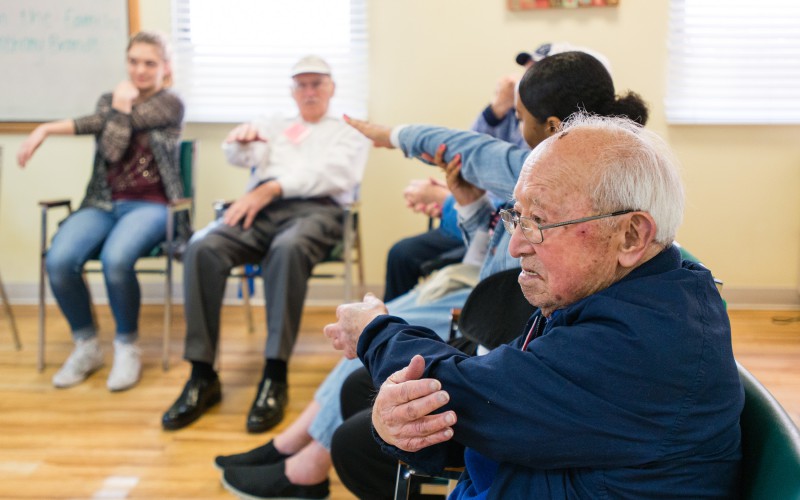How to avoid that age-old dilemma of age-related memory loss

Loss of memory in seniors is equated with dementia or Alzheimer’s. This is enough to terrify any soul.
My mother used to say that she could face anything but dementia. The way she would put it was that she didn’t want to lose her mind.
As little as we think about it, loss of memory or cognitive decline will eventually cut you off from life even though you may be physically healthy, so mental health is a serious private concern. In fact, it is paramount—and loss of memory is a tell-tale indicator that our world is changing. Figuratively, we are leaving flesh and blood and headed toward a vegetable. Love and affection will be gone. All of us know someone who has gone through this.
A study published recently in the journal Alzheimer’s Disease & Associated Disorders found that cognitive decline crosses all demographic and socioeconomic groups, but hits some harder than others. Using a survey asking questions that assessed cognition, researchers determined that 72 percent of adults aged 62 to 90 could be classified as having some degree of cognitive impairment. And those rates climbed with age.
Researchers also found that the more education one had, the slower the rate of cognitive decline. Those with a high school education or greater have much slower rates of decline than those who did not complete high school.
Those with a bachelor’s degree generally didn’t see cognitive decline begin until age 70. Women exhibited higher average cognitive scores than men, but their rate decline much faster than men so that by age 90 there was no difference between the sexes.
The study also found that health-related factors contributed to cognitive decline. Individuals who exhibited “depressive symptoms;” those whose health was “fair” or “poor” (versus those whose health was considered “good,” “very good,” or “excellent”); and those who needed assistance with daily activities (preparing meals, managing money, etc.); all showed lower levels of cognitive function.
Researchers also found that cancer treatments lead to an accelerated rate of cognitive decline.
Previous research has shown that use of non-steroidal anti-inflammatory drugs (NSAIDs), created a 66 percent greater risk of developing dementia. NSAIDs include over-the-counter medications like aspirin, Motrin, Advil and Aleve.
Knowing that there’s essentially a 3 in 4 chance that we’ll develop dementia or Alzheimer’s after we hit our 70s and 80s is almost enough to make us throw up our hands and say, “What’s the use?” But loss of cognition doesn’t have to be our fate.
Like the rest of our body needs nourishment and exercise, so, too, our brains. Here are some ideas on brain-training activities you might try:
- Start a new hobby; learn a new talent or skill.
- Travel (keeping your agenda full of learning about what you see that is new).
- Get a part time job, volunteer or learn a new foreign language.
- Attend adult community seminars and events on interesting topics.
- Play mind activity games like crossword and puzzles.
- Listen to inspiring authors — such as Esther Hicks, Wayne Dyer, Michael Beckwith or others — to focus on feeling good in your relationships and perspective.
A product called phosphatidylserine (PS for short) can help reverse the effects of Alzheimer’s, as reported by James F. Balch, M.D., in his newsletter, “Prescription for Healthy Living” some years ago.
He wrote that, “As long as you have plenty of PS in your bloodstream, your body automatically builds thousands of vibrant, healthy new brain cells at any age. In fact, PS is already reversing Alzheimer’s symptoms—not just in a few individual cases, but in scores of scientific studies by major institutions involving tens-of-thousands of patients.”
PS can be ordered from a company that sells nutritional supplements.
Another supplement that helps the brain’s neurotransmitters is vinpocetine. Produced from the vinca plant, vinpocetine has been shown to support brain metabolism by increasing the body’s ability to use adenosine triphosphate (ATP), which is used for cellular energy.
It is reported to be considerably more effective than ginkgo biloba for supporting mental acuity and alertness. It has been well-proven that vinpocetine improves blood flow to the brain and improves brain function. Several studies indicate it is useful to reduce memory loss and cognitive decline. The recommended dose is 20-30 mg daily.
The simple vitamin niacinamide B3 has been shown by researchers to improve cognitive function in Alzheimer’s patients.
In fact, niacinamide has been used for years to revive and enhance impaired memory in general. It is a safe vitamin and has been used by the public since the 1950s. Its effectiveness undoubtedly has to do with improved brain circulation.
Any of you with a history of Alzheimer’s or schizophrenia in your family should try this simple and very safe vitamin. It is very safe in doses of 500 to 1,000 milligrams.
Other dietary supplements that have been shown anecdotally to help slow the advance of Alzheimer’s include:
- Coenzyme Q10 (ubiquinone, ubiquinol).
- Nicotinamide adenine dinucleotide (NADH).
- Herbs and extracts: Cat’s claw, Bilberry and blackcurrant extracts, Huperzine A.
- Amino acids: Acetyl-L-carnitine, L-glutamine and L-tyrosine.
- Vitamins: B6, B12 and folate, D3, E.
- Walnuts, because of their omega 3.
- Ginkgo biloba.
- Garlic, especially aged garlic.
- EDTA
- Nattokinase.
I also believe that a diet devoid of breads and sugars is important as we age. I especially believe in keeping the blood thin. Thin blood circulates and keeps oxygen supplied to the brain. You know that the blood naturally sludges as we get older and we need to keep it thin. I use garlic, gingko biloba, nattokinase and cod liver oil daily for blood thinners.


No comments:
Post a Comment